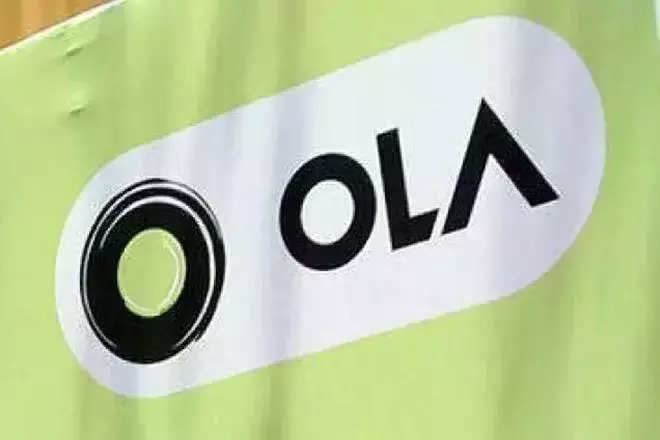Also in this letter:
■ Meesho served notices for ‘violating legal metrology rules’
■ Cocoblu Retail to take over Cloudtail’s fashion, accessories biz
■ NFT firm FanCraze raises $100M, and other done deals
Data centre firms want govt to let them lay their own captive fibre networks
Indian data centre companies have urged the government to let them lay their own captive fibre networks to offer faster and more efficient connectivity to companies.
What’s the issue? Current laws, under which companies must depend on telecom service providers for the fibre, increase prices, makes the process more time-consuming, and affects ease of business, senior industry executives told us.
The data centre sector does not want to be governed by the same rules as telecom operators since it will become expensive and difficult to lay the fibre.
The biggest challenge affecting data centre operations and services in India is around the telecom licences to connect data centres that are not part of the same campus, Vimal Kaw, head, data centre services of NTT Ltd, told us.
“In India, telecom is regulated, and a licence is required for data centre providers to be able to create a network of connected data centres spanning across locations within a city or across cities. Thus, provisions need to be made by the Department of Telecommunication (DoT) and government in the current regulatory framework to enable data centre providers to connect DCs using dark fibres to offer services to DC customers,” Kaw said.
How it works: Typically, companies pay licensed telecom/internet service providers (TSPs/ISPs) on an annual contract basis.
TSPs, in turn, pay a share of their revenue to the government, irrespective of public or private use of the services.
If data centre companies want to set up their own dark fibre networks, they will have to come to a similar revenue share arrangement under current laws, which companies say is not feasible for business-to-business networks.
Nasscom support: IT industry body Nasscom has also supported the data centre industry’s demands through a recent submission to the Telecom Regulatory Authority of India (Trai). Nasscom has asked that data centre companies be allowed to lay their own dark fibre between two or more data centres of the same company, to connect customers’ equipment located within such centres.
Nasscom has told Trai that traditional networks operated by TSPs are principally designed for voice or public data services, not for cloud services, which require very high availability, bandwidth, and low latency for extremely large amounts of data.
Meesho served notice on violations of legal metrology rules

The legal metrology department has issued a notice to Meesho, saying the ecommerce firm has not been in compliance with its rules, which require ecommerce firms to share various details about products on their platforms, including country of origin.
‘Final reminder’: The department sent a ‘final reminder’ dated January 21 to the Bengaluru-based firm, seeking its response after sending a notice to Meesho’s parent Fashnear Technologies on December 31. In the January notice, the department said if the company didn’t respond within a week, it would be ‘constrained’ to move court.
Was fined last year: We have reviewed the notice, which mentioned previous instances in which Meesho failed to comply with the legal metrology rules. From it we learnt that Meesho had at least once paid a fine of Rs 75,000 last year for violating the rules.
These fines are of course minuscule for a company with an estimated monthly burn of around $40 million.
Meesho’s response: “Meesho is a law abiding company and is committed to comply with applicable laws of the country. We are cognisant of the requirement of displaying country of origin and our products across categories display the same,” the company said in an emailed response to ET’s query. It did not respond to specific queries about the notices.
Backstory: The government had said in 2020 that etailers must reveal the country of origin and other details of products on their platforms. This was of significance as this became a bone of contention during the India-China border tensions that year.
The department had fined Amazon India for similar violations in 2020.
Long way to go: LocalCircles, a community social media platform found in a recent survey that one in two online shoppers typically couldn’t find MRP and country-of-origin information, while four in five said that they could not find the best-before dates of products. It said it has received screenshots from consumers on these issues, which it is raising with the government as well.
TWEET OF THE DAY
Cocoblu Retail to take over Cloudtail’s fashion and accessories business

Cocoblu Retail will take over the fashion, apparel and accessories business of Cloudtail, the largest seller on Amazon in India, which is set to shut in about a month, four industry executives told us.
Details: The executives said Cloudtail has communicated that Cocoblu Retail will handle the fashion business from April, after Cloudtail transfers its entire fashion inventory to Cocoblu.
As with Dawntech Electronics, which took over Cloudtail’s electronics business last November, Amazon will not hold any equity in Cocoblu Retail. Dawntech is owned by the Salarpuria-Sattva Group, a leading real estate company in south India.
Cocoblu Retail, a newly floated ecommerce seller that incorporated last October, is a wholly-owned subsidiary of Delhi-based RattanIndia Enterprises. RattanIndia Enterprises is the flagship company of the RattanIndia Group for new-age businesses such as electric motorcycles, drones and fintech.
It has also been picking up Cloudtail executives such as CEO Chandramouli Venkataraman, who joined in February.
Buy it out, shut it down: Earlier this month the Competition Commission of India had approved Amazon’s bid to acquire Infosys founder NR Narayana Murthy’s 76% stake – through his investment office Catamaran Ventures – in Cloudtail’s parent, Prione Business Services.
Both Amazon and Walmart-owned Flipkart have been accused by opponents, including small traders, of operating front companies to sidestep India’s regulations that bar foreign-owned marketplaces from selling anything of their own.
The allegations and the possibility of regulatory actions may be among the reasons why Cloudtail is being wound up, industry executives said. Both the marketplaces have always said they comply with the rules.
ETtech Done Deals

■ FanCraze, the digital collectibles company that in January dropped NFTs (non-fungible tokens) of 75 moments from the ICC Men’s World Cup, has raised $100 million in a funding round. The round was led by New York-based global private equity and venture capital firm Insight Partners, with participation from B Capital.
■ Bootstrapped SaaS company Netcore Cloud has announced in a release it will invest $100 million in an all-cash deal to buy a majority stake in San Mateo, California-based Unbxd to sharpen search capabilities in its product suite as it drives towards an IPO in a year.
■ Food robotics company Mukunda Foods has raised $5 million in a funding round led by Zomato, taking the company’s post-money valuation to $30 million. The brand has previously raised funds from Ncubate Capital, Singapore Angel Network, and Indian Angel Network. It has raised around $8 million in total, including the latest round.
Ola says it will acquire financial services firm Avail Finance

Ride-hailing firm Ola said it has entered into an agreement to acquire Avail Finance, a platform which provides financial services and loans to blue-collar workers. The transaction is still awaiting approval from shareholders, the company said.
Interestingly, Avail Finance was started by Ankush Aggarwal, brother of Ola cofounder Bhavish Aggarwal
With this acquisition, Ola Financial Services will look to strengthen its play in the credit underserved segments comprising the company’s driver-partner ecosystem.
Shareholding pattern: Avail Finance’s shareholders include Matrix Partners (29.3%), founder Ankush Aggarwal (26%), Ola (9%), Alpha Wave (8.9%) and IIFL Asset Management (3.2%).
As a part of the deal, Avail Finance’s leadership team will be joining Ola Financial Services
Didn’t want to time the market, says Veranda Learning CEO

Veranda Learning Solutions, whose Rs 200-crore IPO opens for subscription on March 29, is not looking to time the market as it believes that is not good for creating long-term value, its CEO Suresh Kalpathi told us.
The Chennai-based company, which plans to list on the exchanges on April 7, has set the price band for the initial public offering at Rs 130-Rs 137 a share.
In his words: “If somebody wanted to price their issue to perfection, this would not be the most conducive market,” Kalpathi said. “If your pricing is reasonable, to ensure that there is a significant return on equity for people who participate, my guess is that any market is a great market. We clearly are not looking at timing the market or pricing to perfection. That’s not what creates long-term value.”
Bullish on IPO: The company is bullish about the IPO, he said, as education is a defensive bet. “In India, the last thing families – at all levels – cut back on is education spend. So, it’s an extremely defensive sector,” he said.
Other Top Stories By Our Reporters

ADIF cries favouritism as Google pilots third-party billing with Spotify: Google’s decision to allow select apps to offer other payment methods on its Play Store is an admission of guilt that the existing policy is unfair and discriminatory, a grouping of domestic technology firms said on Thursday. The Alliance of Digital India Foundation (ADIF) said users should have a choice of payment methods for all apps, not just those from select companies.
Byju’s named official sponsor of Fifa World Cup 2022: Edtech unicorn Byju’s has been named an official sponsor of the 2022 Fifa World Cup in Qatar. The company will now be able to use the Fifa World Cup logo, badge, and assets to build unique promotions and distribute them to football fans all around the world. As part of the partnership, Byju’s will also offer educational content for young fans. The Fifa World Cup 2022 will take place from November 21 to December 18.
Global Picks We Are Reading
■ Uber strikes deal to list all New York City taxis on its ride-share app (The Guardian)
■ Instead of consumer software, Ukraine’s tech workers build apps of war (The Washington Post)
■ Oxford teen accused of being multi-millionaire cyber-criminal (BBC)
Today’s ETtech Morning Dispatch was curated by Zaheer Merchant in Mumbai and Judy Franko in New Delhi. Graphics and illustrations by Rahul Awasthi.
























